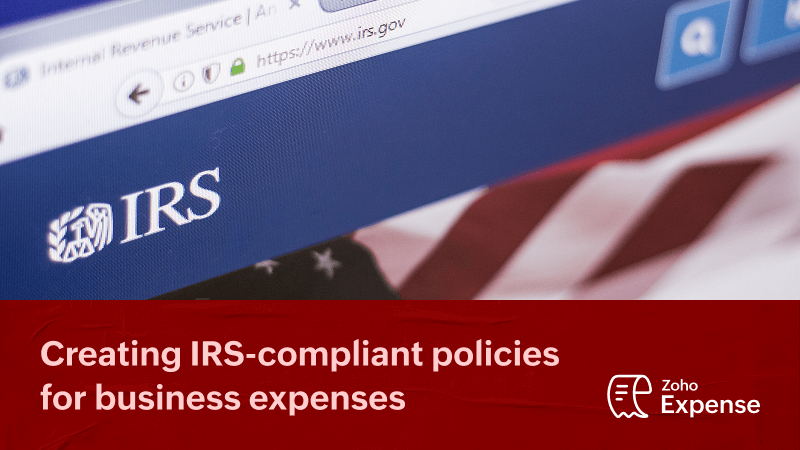- HOME
- Expense Management
- What Are Business Expenses and How to Create an IRS-Compliant Reimbursement Policy
What Are Business Expenses and How to Create an IRS-Compliant Reimbursement Policy
Managing business expenses efficiently is not just about control; it’s about compliance. For U.S. companies, the IRS requires that expense reimbursements follow specific rules under what’s called an “accountable plan.” Without one, reimbursements may be treated as taxable income for employees, creating unnecessary complications.
In this guide, we’ll explain business expenses, how to define them clearly, and how to create an IRS-compliant expense reimbursement policy that protects both your company and your employees.

What Are Business Expenses?
Business expenses are the ordinary and necessary costs incurred in the course of operating a business. These include corporate expenses like travel, office supplies, software subscriptions, client meetings, utilities, and professional services.
Put simply, business expenses mean costs that directly support revenue generation and day-to-day operations.
Examples of business expenses:
- Travel (airfare, hotels, taxis)
- Meals during business travel
- Office rent and utilities
- Software tools or licenses
- Marketing and advertising costs
- Professional fees (lawyers, accountants)
So, when you ask “what is considered a business expense” or “what are expenses in business”, think of any cost directly tied to running and growing the company.
Why You Need an IRS-Compliant Expense Policy
The IRS requires that reimbursements be paid under an accountable plan. If not, a business's expenses are treated as employee income, meaning payroll taxes apply.
An IRS-compliant policy ensures:
- Tax efficiency – No extra tax burden for employees.
- Transparency – Clear guidelines reduce disputes.
- Audit-readiness – Strong documentation makes IRS audits smoother.
Key IRS Rules for Expense Reimbursement
To comply with IRS standards, your policy must follow three rules:
1. Business Connection Test
Reimbursements must cover only expenses in a business context. For example, a client lunch is valid, but a personal family dinner is not.
2. Substantiation Requirement
Employees must submit proof (receipts, invoices, mileage logs) showing what is a business expense and why it’s necessary. The best practice is to use an expense management system like Zoho Expense for digital records.
3. Return of Excess
If employees receive an advance for expenses for a business trip, they must return any unused funds within a reasonable time frame.
Steps to Create an IRS-Compliant Expense Reimbursement Policy
- Define What Qualifies as a Business Expense: Clearly list business expenses that will be reimbursed: travel, lodging, meals, equipment, subscriptions, etc. Include exclusions like personal leisure expenses.
- Outline Documentation Requirements: Specify what receipts or proof must be submitted.
- Set Submission Timelines: IRS recommends “reasonable time” (often 30–60 days) for employees to claim business expenditures.
- Create Rules for Advances: State how employees can request advances and how excess must be returned.
- Standardize Approval Workflow: Who approves corporate expenses? The manager? The finance team? Automating this via a solution like Zoho Expense reduces errors.
- Ensure Tax Compliance: Make it clear - Non-compliant submissions mean taxable income.
Best Practices for Expense Policies
- Use plain language to explain expenses business definition to employees.
- Leverage technology like Zoho Expense to track the costs in a business in real time.
- Update policy annually to reflect IRS changes.
- Train employees on the meaning of business expense versus personal cost.
In summary, creating an IRS-compliant expense reimbursement policy protects your company from tax risks and ensures fair treatment of employees. When done right, your policy not only meets IRS standards but also builds trust, efficiency, and clarity around business expenses.